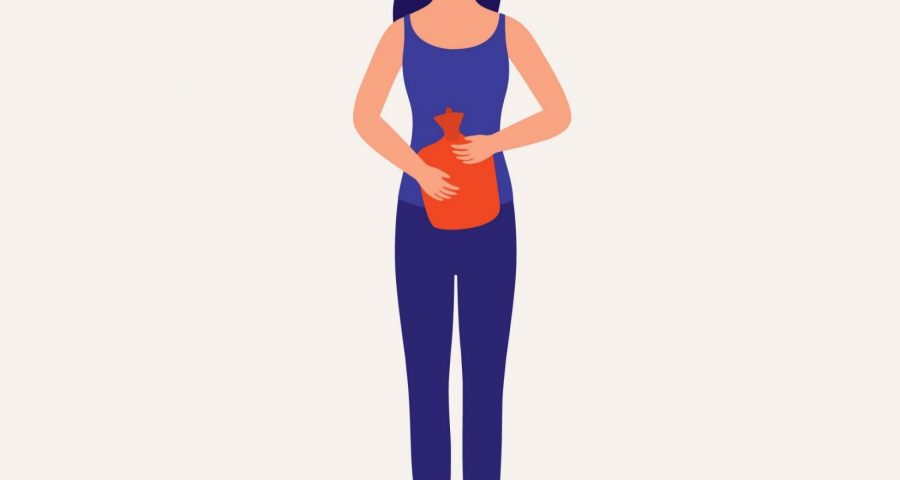Period pain is common, but dysmenorrhea shouldn’t be thought of as normal.
Periods are painful, and trying to ignore that pain is important for continuing with work and a social life. At least, that’s what many of us have been led to believe, with up to 91% of women experiencing some form of dysmenorrhea, the medical name for painful periods, at some point in their life.
But according to a review from the journal Epidemiological Review, dysmenorrhea is the most commonly complained about symptom of menstruation. Almost 30% of those who live with dysmenorrhea experience severe symptoms – a pain so chronic that it impacts their day-to-day lives. But despite how common it is, should pain ever be seen as OK?
You may also like
Period pains: can magnesium supplements ease menstrual cramps?
“Primary dysmenorrhea is the name for period pain without any identifiable causes or pathology,” explains Zahra Ameen, consultant gynaecologist at the Cadogan Clinic. “It is thought to be caused by the production of uterine chemicals called prostaglandins during menstruation which causes uterine contractions and pain.”
This is typical ‘period pain’, with symptoms including throbbing pain or pressure in the abdomen, lower back, hips or inner thighs. “Other symptoms such as fatigue, nausea, diarrhoea or vomiting may also accompany dysmenorrhea,” adds Ameen.
But just because there is no underlying condition causing primary dysmenorrhea, that doesn’t mean it’s normal. While we can all deal with a bit of discomfort in our bodies, pain is a different story. A 2015 paper published in Human Reproduction Update reported that the condition is a risk factor for fibromyalgia later in life, as well as having an immediate negative impact on quality of life for up to a few days every month.

“Women with primary dysmenorrhea have a significantly reduced quality of life, poorer mood and poorer sleep quality during menstruation compared with their pain-free follicular phase and compared with the menstruation phase of pain-free women,” the report concludes.
Secondary dysmenorrhea describes pain that occurs as a result of other reproductive problems. “These include conditions like endometriosis, fibroids, pelvic inflammatory disease or adenomyosis. The pain can be extreme and debilitating, including intense pain, muscle cramps, nausea, vomiting, fatigue, diarrhoea, and chills,” explains Ameen.
Given what we know about long waiting times for women’s health problems (for example, it takes an average of seven years to find out you have endometriosis) and the huge gender health gap, pain has become a regular part of many women’s lives. And according to a 2018 report from BMC Women’s Health journal, many aren’t taken seriously when they do report it.
You may also like
Endometriosis pain: “Doctors told me my period pains were nothing. Then I collapsed.”
“Dysmenorrhea was not seen as a legitimate health issue by the women, health care providers, or society, and treatment for women with dysmenorrhea varied in acceptability and effectiveness,” researchers concluded.
How to deal with dysmenorrhea
There is currently no ‘cure’ or treatment for dysmenorrhea other than pain killers; some medical professions prescribe contraceptive pills or offer treatment for the underlying cause in secondary cases. That means that most advice is lifestyle based, with interventions like exercising when possible (it’s OK not to be able to do intense workouts when dysmenorrhea hits) and minimising alcohol intake and smoking.
Ironically, stress and depression are associated with worsening dysmenorrhea – a condition that is, by its very nature, very stressful.
So perhaps the most important way to look after your health if you have dysmenorrhea is to not accept it as normal.
“It’s important to receive an accurate diagnosis to enable an effective treatment plan. If you have concerns regarding your periods, in particular if you have just started your period or there has been a sudden or acute change in their nature (for example if they are suddenly heavier, more painful, irregular or if you have bloating and pressure), then it is important to seek a medical opinion and further assessment and advice from your GP or specialist gynaecologist,” explains Ameen.
Images: Getty
Source: Read Full Article
